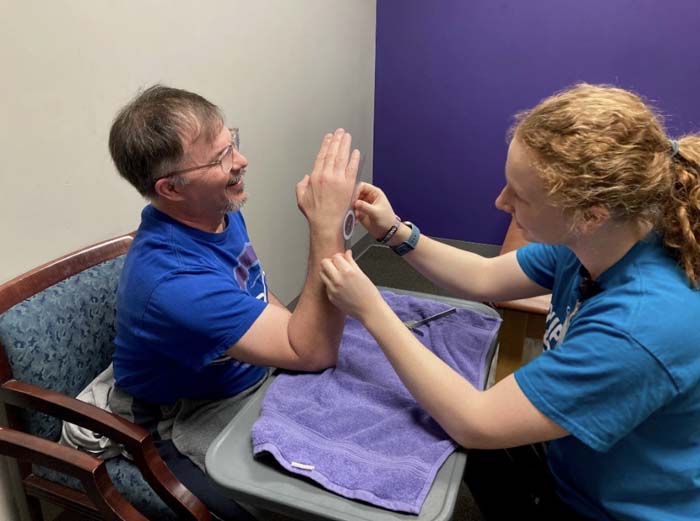
Injuries can be life-altering events, impacting not only your physical health but also your ability to perform everyday tasks. Whether it's a sports injury, a work-related accident, or a fall at home, the road to recovery often involves more than just healing the injury itself. This is where occupational therapy (OT) plays a crucial role.
What is Occupational Therapy?
Occupational therapy is a specialized field of healthcare that focuses on helping individuals regain the ability to perform daily activities—what we call "occupations"—that are essential for independent living. Unlike physical therapy, which primarily focuses on improving strength, mobility, and range of motion, occupational therapy is concerned with the functional and practical aspects of life, from getting dressed in the morning to returning to work.
Why Occupational Therapy Matters for Injuries
-
Personalized Care and Recovery Plans
Every injury is unique, and so is every person's experience with it. Occupational therapists work closely with patients to develop individualized treatment plans that cater to their specific needs and goals. Whether it's regaining the ability to button a shirt, write with a pen, or return to a job that requires manual dexterity, OT provides targeted interventions that make a difference.
-
Improving Functional Independence
Injuries can make even the simplest tasks seem daunting. Occupational therapy helps bridge the gap between where you are and where you need to be, focusing on practical solutions to restore independence. Through exercises, adaptive techniques, and sometimes assistive devices, OT helps patients regain the skills they need to live independently.
-
Pain Management and Prevention
Chronic pain can be a significant barrier to recovery. Occupational therapists are trained to help manage pain through various techniques, including ergonomic adjustments, splinting, and specific exercises. By addressing the pain at its source and teaching patients how to manage it effectively, OT can help reduce discomfort and prevent further injury.
-
Holistic Approach to Recovery
Occupational therapy doesn’t just focus on the physical aspects of recovery; it takes a holistic approach that considers the emotional and psychological impacts of injury as well. OT can help patients develop coping strategies, build resilience, and regain confidence in their abilities, which is crucial for a successful recovery.
-
Facilitating a Return to Work
For many, getting back to work is a primary goal after an injury. Occupational therapists work with patients to develop work-specific skills, often using simulated work environments or modified tasks to ease the transition back to employment. They also collaborate with employers to make necessary workplace accommodations, ensuring a smoother return to the workforce.
When to Consider Occupational Therapy
If you or a loved one is recovering from an injury and finding it challenging to perform daily activities, occupational therapy could be the key to a more complete and successful recovery. From improving functional abilities to addressing the psychological impacts of injury, OT offers comprehensive support that goes beyond traditional rehabilitation.
Conclusion
Occupational therapy plays a vital role in the recovery process, helping patients not only heal from their injuries but also regain their independence and quality of life. By addressing both the physical and emotional aspects of recovery, OT empowers individuals to return to their daily activities with confidence and competence.
If you're dealing with the aftermath of an injury and finding it difficult to manage daily tasks, consider reaching out to an occupational therapist. With their expert guidance, you can navigate the road to recovery with greater ease and achieve a higher level of functional independence.
Ellie Spillane, OTR/L, is an Occupational Therapist with Unified Therapy Services. She primarily treats adults (and children 14+) at our 4135 Pennsylvania Ave. clinic, and at our Elm St. location which is located inside of the Crescent Community Health Center building. If you would like to schedule an appointment with Ellie or request a referral from your healthcare provider, please call 563-583-4003, option 2.
